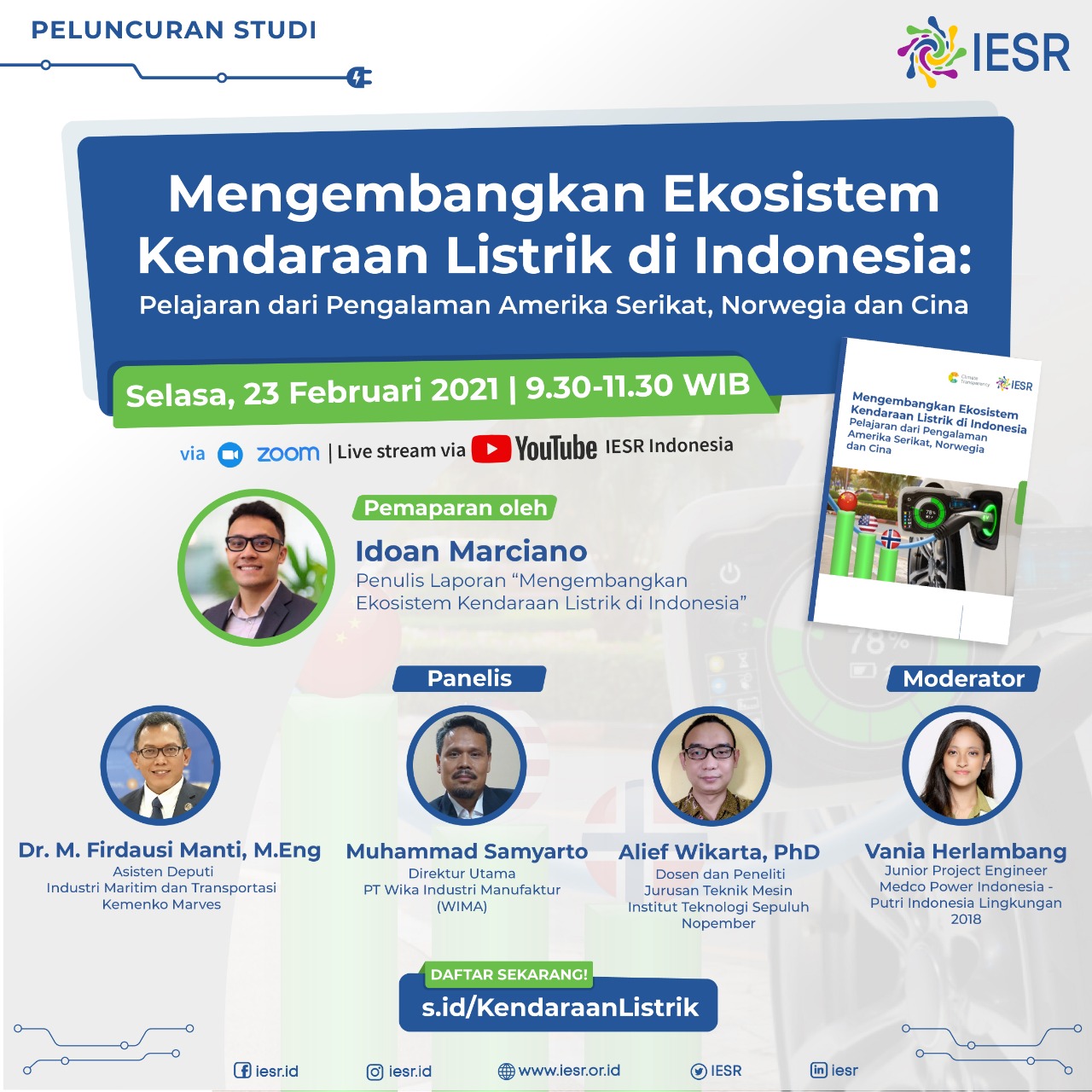
Developing EV Ecosystem in Indonesia – A Report Study Launch
The use of electric vehicles as one of the emission reduction actions in the transportation sector is expected to replace fossil fuel-based vehicles. The electric vehicle which has higher efficiency, makes the energy consumption required far less in comparison to conventional vehicles, so they can produce much lower emissions. If supported by the use of renewable energy in the electricity system, electric vehicles have the potential to be an effective decarbonization solution in the transportation sector. On the other hand, the adoption of electric vehicles
can have a positive impact on the country’s economy, especially through a reduction in fuel oil (BBM) consumption and opportunities to develop the local electric vehicle industry.
Globally in 2019, there were 7.2 million units of electric cars and around 350 million units of two / three-wheeled electric vehicles, the majority of which were in China, the United States, and countries in Europe. These countries have successfully adopted electric vehicles by implementing strategies and certain policies that build the electric vehicle ecosystem. Writing this study aims to provide strategic and policy recommendations for the Indonesian government to be able to build an electric vehicle ecosystem in the country from the lessons of three comparison countries, namely Norway, China, and the United States. The three countries were selected due to their high level of electric vehicle adoption, and considering several other factors. China and America
The union has successfully recorded the highest sales of electric vehicles, while Norway has the largest share of the electric vehicle market in the world.
This study defines the electric vehicle ecosystem including several aspects, namely: (a) charging infrastructure; (b) electric vehicle model and supply; (c) public awareness and acceptance; (d) the supply chain for batteries and electric vehicle components; (e) incentives and supporting policies from the government. In this study, the strategies and policies adopted by the three comparison countries are analyzed for each aspect of the electric vehicle ecosystem.

